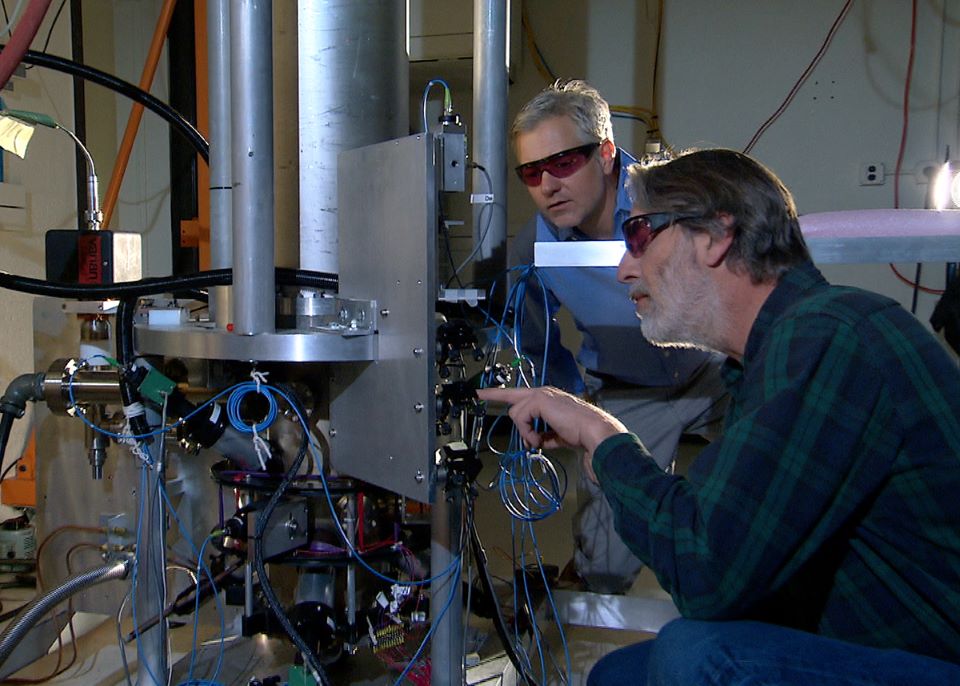The causes of climate change are mainly attributed to greenhouse gases. However, global warming is disrupting the natural cycle and order in the ecosystem. Global warming originates from heat emissions from technology, machines and devices that consume energy and living beings. The human body generates a lot of heat, especially through the head. The human brain can be regarded as a biological supercomputer that consumes a large portion of energy in the body. If we are not relaxed but physically or mentally agitated, we generate a lot of heat, feel hot, and need air conditioning.
Therefore, the human body, especially the head, is a persistent heat source, producing a non-negligible amount of human heat. When people are restless, it is not good for the environment because the body generates more heat. Also, the unsettled mind can be contagious and may churn up many things, creating chaos and mess, such as in social media and family relationships. People are stressed, especially during the pandemic lockdown, because they cannot control their minds and stay calm while their bodies are physically constrained.
In the information age, electromagnetic waves are everywhere, heating the environment through information and communications technology (ICT) devices like mobile phones, 5G transmitters, computers and data storage servers/data centres. Although the heat emission from a mobile phone is relatively small, it is switched on almost always, even at night when we forget to switch it off. Of course, the engines of transport vehicles that run on the combustion of hydrocarbon fuels also release a lot of heat. Cars, commercial vehicles, and buses that let their engines run while not moving contribute to unnecessary heat, greenhouse gas emissions, and fuel waste. All these heat sources are due to technology and must be considered when addressing climate change issues, not only greenhouse gases.
Adaptation to climate change needs a change in mindset and how we do things. Besides having precautions and contingency plans for emergency readiness, education and increased awareness are important. People must realise that nature is part of us, not just an asset or resource being harnessed and manipulated.
Everyone should consider nature as a living entity. Respect nature and be grateful for the air, water, and sunlight that give life to vegetation, blue sky, cloud and rain, wind and breeze, forests with diversities, mountains that support and protect everything, rivers that support lives, and oceans that moderate temperature. We are alive because all these are in order, synced and fine-tuned to the cycles of the celestial bodies, the moon and the sun. Nature will flourish if we perish, but not otherwise. Therefore, we must understand that we are not the “boss” of the ecosystem.
As a precaution against landslides, constructing high-rise buildings near hills or sloppy areas should be avoided, and more stringent regulations should be enforced. Authorities should not risk people’s lives at the expense of economic gain. Besides, in city planning, we need to increase the porosity of soiled surfaces to allow rainwater to escape into the ground and prevent flash floods. Therefore, it is important not to use every piece of land for construction and not to cover the soil with concrete completely.
While we must be self-sufficient, we must not reap or accumulate much more than we need. Nature provides for everyone’s needs and not one person’s greed. Nowadays, it is convenient to gain access to open technology; anyone can learn through the use of the internet and do-it-yourself (DIY) to self-cultivate or grow vegetables and fruits within their land and space, as well as self-harnessing the energy and water at home through simple intervention.
The reality of the mind affecting matter is in line with science, particularly quantum theory, which shows that reality depends on how we observe, perceive and interpret information from our senses. Our thoughts affect nature; not only do they precede our actions. Therefore, spiritual reflection with kindness and love concerning nature will reverberate positively, leading to our mental and physical well-being.
We need to be gentle and delicate when dealing with Mother Nature. It has been scientifically proven that plants and animals are more sensitive than expected. They can sense many things about us and are easily affected by our activities and all the artificial things we produce.
During the incidents of landslides, it has been noticed that wildlife like monkeys and bats behave differently. The Aborigines (orang asli) knew how to identify the signs of landslides by listening to the sound pattern on the ground. The traditional wisdom can complement modern techniques of using sound (acoustic waves) detectors and high-resolution remote sensing satellite images from state-of-the-art atomic clocks with remarkable accuracy. Such a clock uses atoms cooled to microKelvin temperature, called ultracold atoms.

By observing the flora and fauna, we can identify the signs of forthcoming calamities. We need to be more attentive or observant, sensitive and perceiving of nature and our surroundings. Other lifeforms have sensitivities that are superior to ours. Scientific discoveries, mainly in quantum biology, have shown that migratory birds can detect the faint earth’s magnetic fields for navigation. Also, plants have certain visual perceptions that allow them to “see” their surroundings.
Therefore, flipping the earth’s magnetic fields can create ecological havoc. The presence of magnetic fields from electrical systems and transmission lines also affects insects and can affect pollination and food production. There are a lot of subtleties in nature and within us that we have yet to discover and understand. It is relevant to mention the book, “Subtle Is the Lord: The Science and the Life of Albert Einstein” by Abraham Pais.
Science is advancing as we continue to learn. It is wise not to brush off or degrade knowledge or findings that are not yet scientifically verified, especially cultures and practices of ancient traditions, as more truth is continuously being revealed through scientific exploration with more sensitive techniques we need to keep in mind: “The absence of evidence is not the evidence of absence”. The best adaptation is to educate ourselves about the way of nature by experiencing nature and walking along with nature.
Nature’s way is simple: efficiency, simplicity and sufficiency. If we adopt and practise these principles diligently, we can achieve sustainability. Nature can heal itself in a given time. Still, as we try to aid in the healing process, particularly as scientists and policymakers, we must be extremely careful not to overdo it to the point of no return, taking note of the sensitivities involved. As Lao Tzu wrote with profound and timeless wisdom: “That which goes against the way of nature comes to an early end”.



